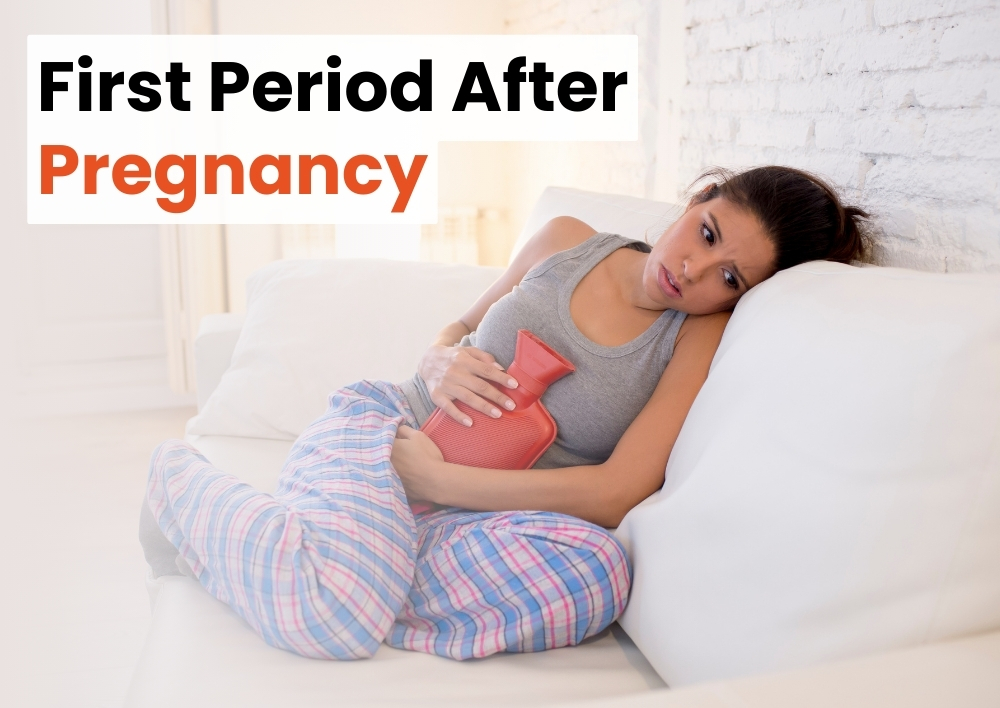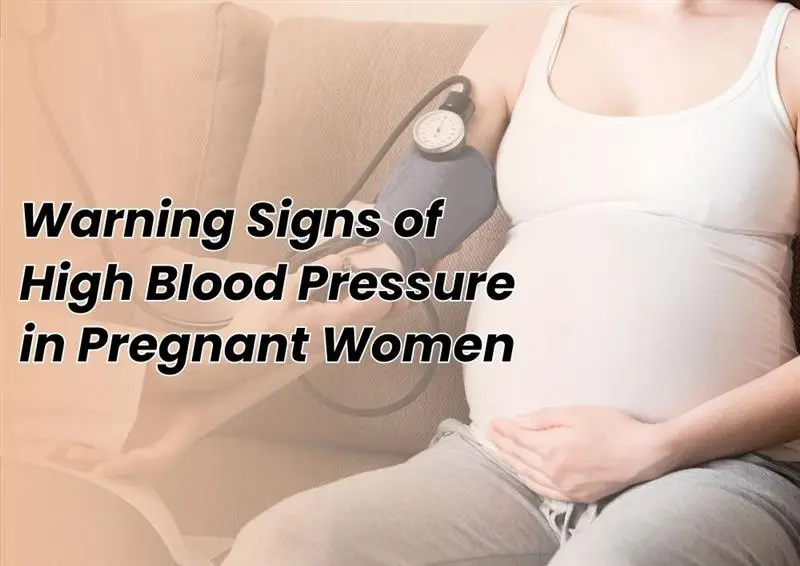First Period After Pregnancy
Summary: After childbirth, it is normal to wonder when your period will return. Postpartum bleeding, called lochia, happens right after delivery and is different from a regular period. The return of menstruation depends largely on whether or not you are breastfeeding, with some women getting their period within weeks and others after several months. The first period can be heavier, more irregular, and come with stronger cramps.
Overview
Childbirth is a miraculous journey. After nine months of blissful freedom from your period during pregnancy, you might be wondering when that monthly visitor will make its comeback. Whether you are eager or anxious, understanding what happens as your body starts to return to its pre-pregnancy state is important. One important milestone is the return of your menstrual cycle. Knowing what to expect during this time can help you feel more prepared. The timing largely depends on your breastfeeding routine, and there may be a few surprises in store when your cycle returns. If you are a new mom and this question is constantly on your mind, don't worry. Here is what you need to know about your periods after delivery. In this blog post, Dr. Sadhna Sharma, one of the best Gynaecologists in Gurgaon at Miracles Apollo Cradle, explains in detail what to expect from your first menstruation after delivery.
Postpartum Bleeding (Periods After Delivery)
Postpartum bleeding, known as lochia, is the vaginal discharge that occurs after childbirth. It consists of blood, mucus, and uterine tissue and typically lasts for 4 to 6 weeks, though it can extend up to 8 weeks. This progresses through three phases: lochia rubra, which is bright red and heavy like a period during the first few days; lochia serosa, which is pinkish or brownish with a lighter flow from days 4 to 10; and lochia alba, which is a yellowish-white discharge that is scanty and occurs from day 10 until lochia ends.
Initially, The first menstruation after delivery is heavier than menstrual bleeding and slowly decreases in volume and changes color. It serves the purpose of expelling leftover blood, mucus, and placental tissue from the uterus. It is important to seek medical attention if the bleeding is excessively heavy, if large clots after the first few days, if the discharge has a foul smell, or if bright red bleeding persists beyond the first week.
Postpartum Bleeding vs Menstrual Bleeding
The key differences between postpartum and menstrual bleeding lie in their cause, duration, flow characteristics, and content.
-
Postpartum bleeding is caused by the body expelling post-pregnancy uterine contents and lasts 4 to 8 weeks, whereas menstrual bleeding is the regular shedding of the uterine lining in non-pregnant women and lasts 3 to 7 days.
-
Postpartum bleeding starts heavy and gradually decreases and changes color, while menstrual bleeding can vary in heaviness but follows a regular pattern with each cycle.
-
Postpartum bleeding includes blood, mucus, and placental tissue, whereas menstrual bleeding primarily consists of blood and uterine lining. Understanding these differences is crucial for identifying normal postpartum recovery and recognizing when medical advice might be necessary.
When To Expect Your First Menstruation After Delivery?
Just like every pregnancy journey is unique, so is the timing of your first menses after delivery. The timing of your first postpartum period varies for each woman. If you're not breastfeeding, your period could return as early as 6 to 8 weeks after delivery. For breastfeeding moms, especially those who only nursing, it might take several months. Some women don't see their period until they completely stop breastfeeding.
How Breastfeeding and Menstruation Are Related?
Breastfeeding and menstruation are interlinked due to the hormone prolactin, which is responsible for milk production and can stop ovulation by interfering with reproductive hormones like estrogen and progesterone.
Exclusive Breastfeeding:
-
If you are exclusively breastfeeding, it is common for your periods after delivery to be delayed
-
Many breastfeeding mothers do not get their first period after childbirth after delivery for several months, sometimes up to a year or more.
Combination Feeding or Formula Feeding:
-
If you are combining breastfeeding with formula feeding or exclusively formula feeding, your period is likely to return sooner.
-
Typically, menstruation may resume within 6-12 weeks after childbirth.
What to Expect?
Don't expect your first period post-baby to be just like your pre-pregnancy period. Here are a few changes you might notice after baby delivery:
-
Heavier Flow: Your first period may feel like a flood gate has opened. This is because your uterine lining had extra time to build up.
-
Irregular Cycles: It might take a few cycles for your period to find its rhythm again. Irregular periods are common as your body readjusts.
-
Increased Cramping: You might experience stronger cramps than you're used to, due to the changes in your uterus and pelvic region.
-
Clotting: Some women notice small blood clots in their menstrual flow. This can be normal but keep an eye on the size and frequency.
Tips For Managing Your First Period Postpartum
-
Stay Prepared: Have sanitary pads ready once you hit the six-week postpartum mark, especially if you're not breastfeeding.
-
Pain Relief: Over-the-counter pain relievers like ibuprofen or acetaminophen can help manage cramps. Always consult your gynecologist before taking any medication, especially if you are breastfeeding.
-
Hydration and Diet: Staying hydrated and eating a balanced diet rich in fruits, vegetables, and whole grains can help relieve some symptoms. Foods high in iron can help refill what you lose during your period.
-
Rest: The postpartum period is already a time of significant physical and emotional adjustment, so be kind to yourself and ensure you get plenty of rest.
-
Heat Therapy: A warm bath or heating pad can help soothe cramps and relax tense muscles.
When to Consult a Doctor?
-
While it’s normal for postpartum periods to be heavier initially, soaking through a pad or tampon every hour is a sign to consult your gynecologist.
-
Small clots are common but clots larger than a golf ball should be discussed with your doctor.
-
It’s normal for your cycles to be irregular at first. However, if irregularity continues for several months, seek medical advice.
-
Mild cramping is expected, but severe pain or discomfort is not. Constant or intense pain should be evaluated by a gynecologist.
-
Periods that last longer than seven days may indicate an underlying issue and should be checked by your doctor.
-
Occasional spotting is normal, but continuous spotting outside your regular period needs to be addressed.
-
Normal postpartum periods may have varying colors and consistencies, but foul-smelling or unusual discharge could signal an infection.
-
Hormonal fluctuations can affect your mood. If you experience severe mood swings, anxiety, or depression, seek support from a gynecologist.
-
Excessive tiredness could be linked to heavy bleeding and should be discussed with your doctor.
Conclusion:
Your first period after pregnancy is a significant milestone in your body’s recovery journey. Every woman's experience is different, so be patient with yourself and stay tuned to your body's signals. If you have concerns or unusual symptoms, reach out to the best gynaecologist near you at Miracles Healthcare for guidance. Celebrate this phase as another chapter in your incredible motherhood journey!
Frequently Asked Questions
If you are not breastfeeding, your menses might return within 6 to 8 weeks after your delivery, but if you are breastfeeding, menses may take a few months to come back.
The first period after delivery may last 4–7 days, but some women experience slightly longer or shorter durations.
You may notice heavier bleeding, stronger cramps, blood clots, and irregular cycle patterns.
Similar to vaginal delivery, after cesarean delivery, the periods may return in 6–8 weeks if you are not breastfeeding, or later if you are.
Yes, the first period is often heavier than usual due to the thickened uterine lining.
The first period after pregnancy is so heavy because of hormonal changes and a thickening of the uterine lining during the postpartum phase.















Was the information useful?
4 0